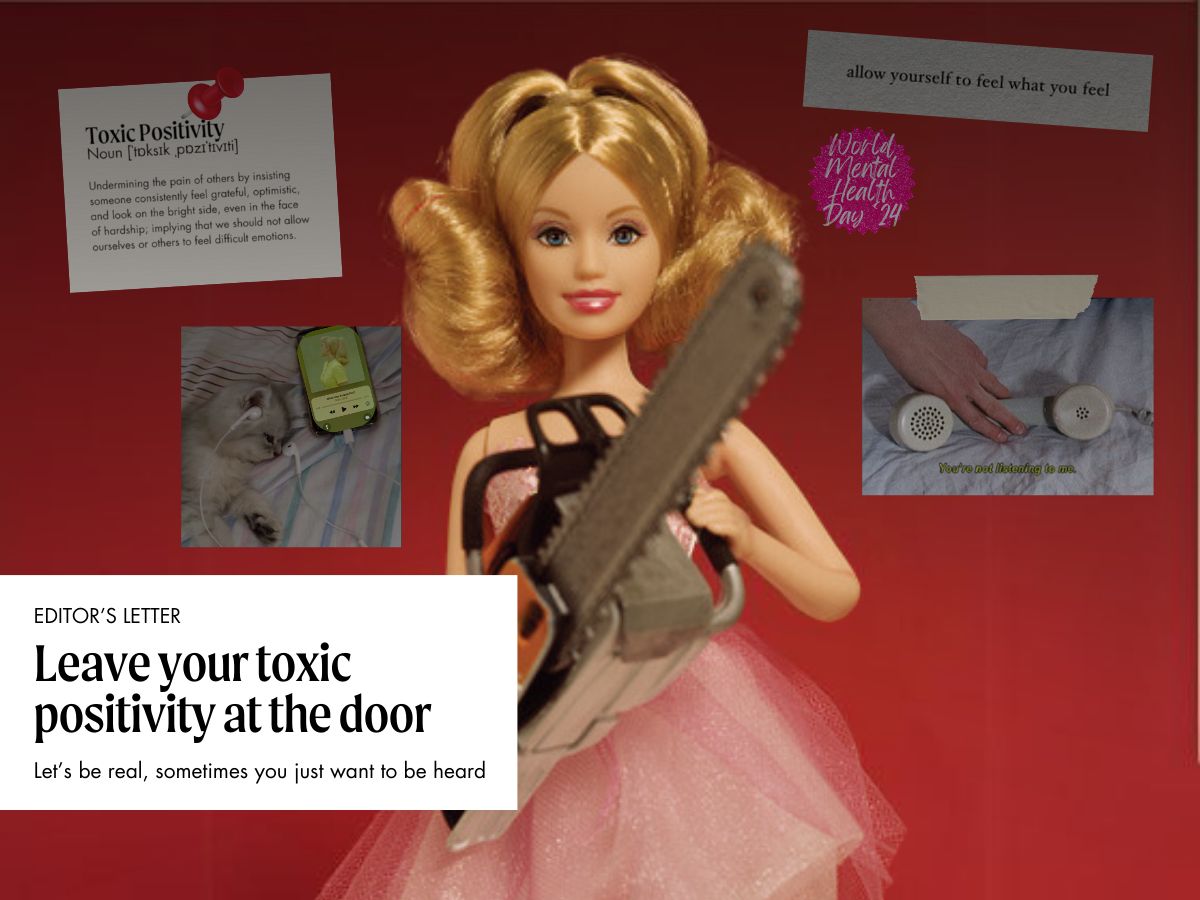I would like to think of myself as a fairly positive person; it takes me a lot for me to lose my temper, I’m always ready to offer empathy to those in need, and if there’s a work-related issue I am nothing if not solution-driven – but I am also a realist. And I’m finding it increasingly difficult to hold conversations with people who try and put a positive spin on quite literally everything. When someone tries to smother my pain or disdain with upbeat statements, it’s not supportive. It’s toxic.
A by-product of the Feel-Good movement, a sugar-coated form of false reassurance, toxic positivity is very real – and very annoying. I can’t bear any more conversations with those who put their focus on positive emotions, to the exclusion of all else. The people who do their utmost to paint every event with joy. Some events, however, are simply not joyful. They are upsetting, annoying, or emotionally draining – and that’s ok.
The term was popularised by Whitney Goodman, a psychotherapist and author of Toxic Positivity: Keeping It Real in a World Obsessed With Being Happy. “The core of toxic positivity is that it’s dismissive and it shuts down the conversation,” she writes. And she’s not wrong. The act of brushing off a person’s negative emotions – well, in my case, anyway – results in me giving a watered-down version of myself that people find perhaps more…palatable?

“Sitting with uncomfortable emotions takes vulnerability and courage,” says Michelle Estekantchi, a CDA Licensed Psychologist at Thrive Wellbeing Centre in Dubai. “Many people have been taught from a young age to not feel or display certain types of emotions, and if this happens from childhood, it can be very difficult in adulthood to recognize negative emotions and know what to do with them.”
We live in a world that’s burning (global warming is here, ppl), and full of economic uncertainties, hiring freezes, layoffs and more – so, I get it, the urge to cling to optimism is an understandable one. Sometimes people really are just looking for reassurance and good energy. But by refusing to allow others to experience or express feelings of sadness, frustration, jealousy and fear, you actively invalidate them.
Often when people tell you how they feel, all they need is a bit of emotional realism and just to be listened to. Toxic positivity can be alluring because it gives you an easy way out. And, for many, optimism is a natural state of mind. But you know what? Sometimes, feeling really sh*t isn’t that deep at all. In fact, sometimes it actually just feels great to just be miserable.
The latest issue of Cosmopolitan Middle East is out now! You can read it here.

